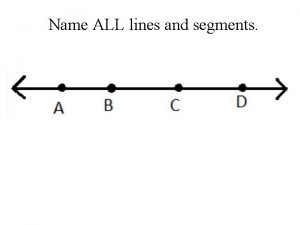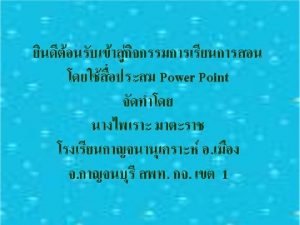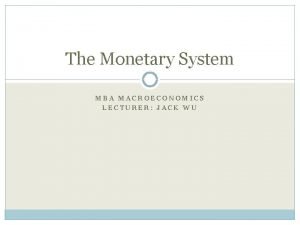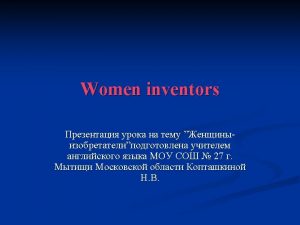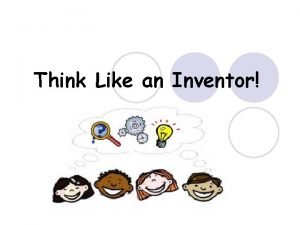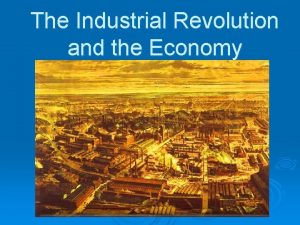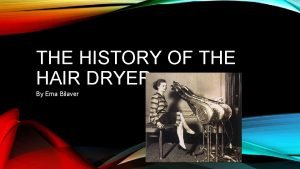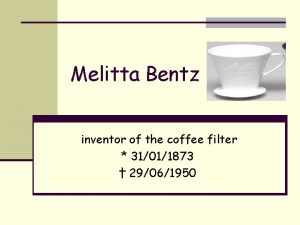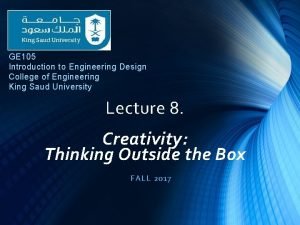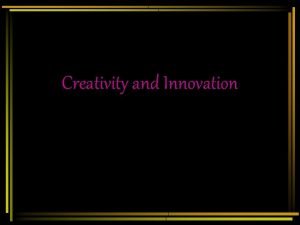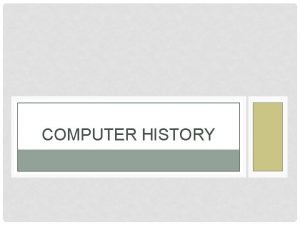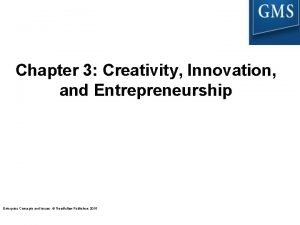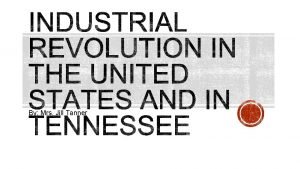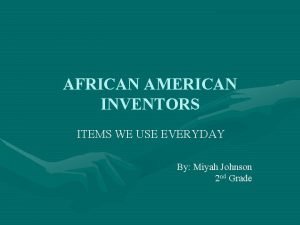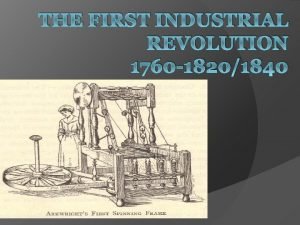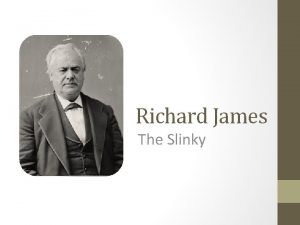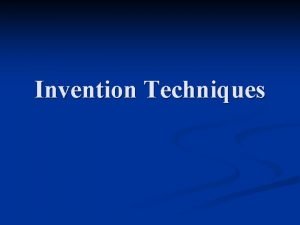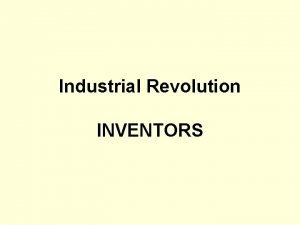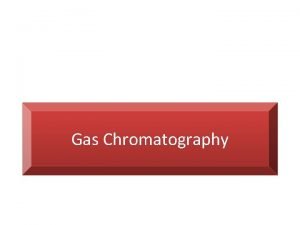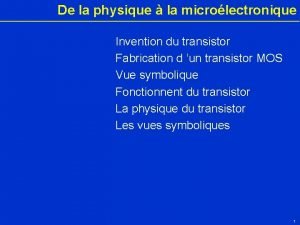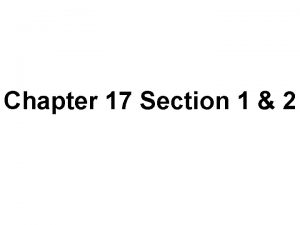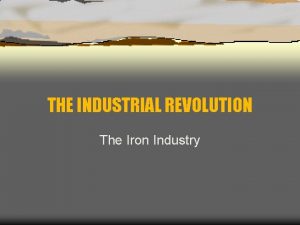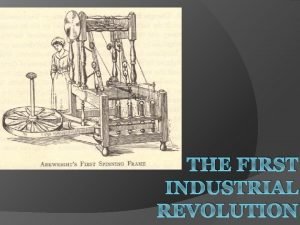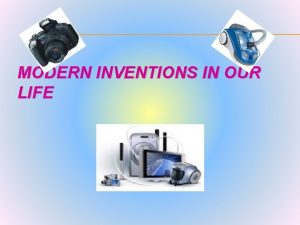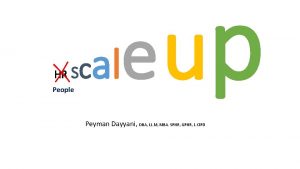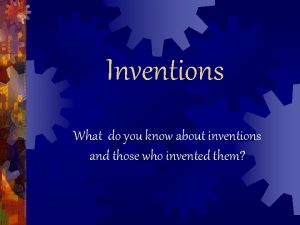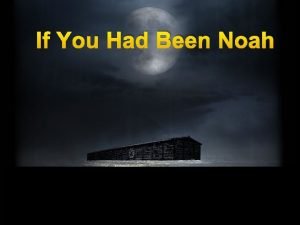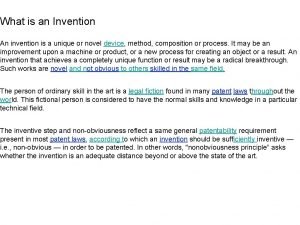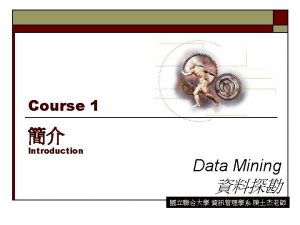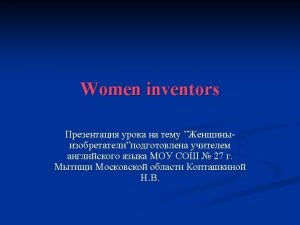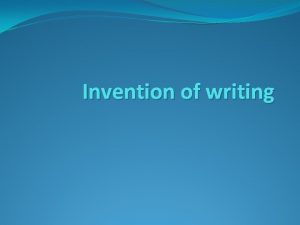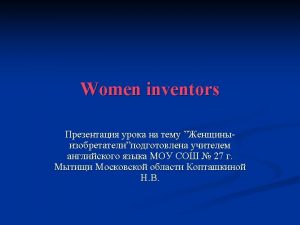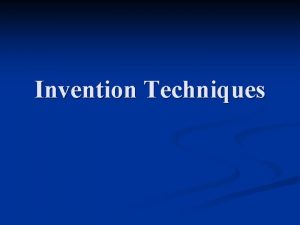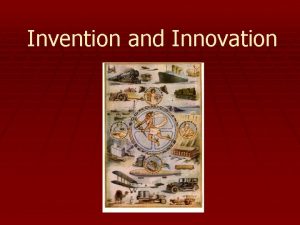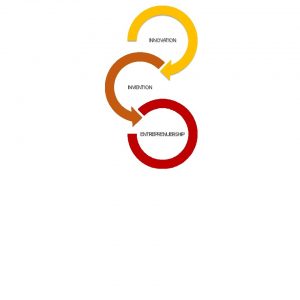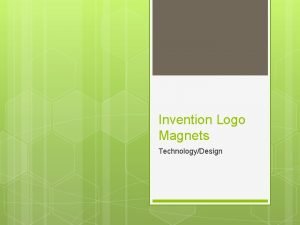Inventions If you had to name the invention










































- Slides: 42

Inventions • If you had to name the invention most valuable to your daily life, what would it be and why?

Before and After • Look at the sixteen images and put them into eight pairs using the principle of “before and after. ”

How are they different? • How are the “after” pictures different than the before pictures? • What do the “after” pictures have in common?

How would you define industrialization? • Work with your group to come up with a definition of industrialization.

Industrialization • The widespread use of machines to produce goods. • The economy changes from farming to factories.

From horse drawn plows to tractors • Tractors and farm machines increased the productivity of agriculture • Fewer people were needed to produce food on the farm • Many people moved to cities to work in factories

From spinning wheel to textile factories • Cloth production in the home moved to textile production in the factories • Mass produced clothing replaced hand made items

From wooden bridges to steel bridges • The development of the steel industry made steel bridges possible • Above the Brooklyn Bridge built in 1883 • Steel was the skeleton of industrialization and was used in the development of railroads and skyscrapers

From wagons to railroads • After the Civil War railroads crisscrossed the nation, transporting people, crops, and industrial materials

From horse drawn carriages to automobiles • Henry Ford created the assembly line for automobiles • He mass produced Model A and Model T Fords, making cars affordable

From gas light to electric light • Thomas Alva Edison invented the electric light in 1879 • Electric lights were installed in cities and homes throughout the nation

From letters to telephone • Alexander Graham Bell invented the telephone in 1876 • He was also responsible for creating the first telephone company, Bell Telephone.

From live music to the phonograph • The first phonograph was invented by Thomas Alva Edison in 1874 • He was also credited with inventing the battery and motion pictures

Richest in the world? • Do you know who is the richest person in the world? How did he make his money?

Bill Gates • He is worth an estimated 52. 8 billion dollars • He made his fortune as the head of Microsoft computer co.

Andrew Carnegie • Carnegie made his money in steel production • He created his empire by buying all parts of the steel making process including coal mines, iron mines, steel refineries. • Vertical integration

John D. Rockefeller • John D. Rockefeller made his money in oil, the fuel of industrialization. • He gained control of 90% of oil production creating Standard Oil. • Horizontal integration

Richest then and now. • Do you know the richest people in 1900? • How do you think they made their money?

How he treated workers. • Carnegie lowered wages for workers at Homestead plant • Workers went on strike. • Managers brought in guards to break strike

How he spent his money • traveling

How he donated his money • Carnegie built 2800 libraries • Established the Carnegie Institute of Technology • Carnegie Endowment for Peace • At death donated 350 million dollars to charities

How he acquired his wealth • • Rockefeller built oil refinery Started Standard Oil Near monopoly in oil Started Trust

How he treated workers. • No information in reading. • A second source said that he treated his workers well, paying them above the market wage

How he spent his money • No information available

How he donated his money • Rockefeller gave money to University of Chicago • Rockefeller Institute for Medical Research • Gave 500 million away in lifetime

How he acquired his wealth • • Carnegie worked in factory Telegraph operator Worked for railroad and invested in oil Built Carnegie Steel Company

Trust • Trusts are legal concept that allows one person to manage another person’s property. • “Standard Oil was the first trust. ”

Entrepreneur • A business person who takes risks in order to earn a profit. • “Bill Gates is the entrepreneur who started Microsoft”

Corporation • Corporations are big businesses that issue stock. • “The stockholders of the corporation elected a new CEO. ”

Monopoly • A monopoly is a business that controls an entire industry. • “Rockefeller had a monopoly on the oil industry. ”

Philanthropist • A philanthropist is someone who gives money to worthy causes. • “Andrew Carnegie was a philanthropist because he gave millions of dollars to build libraries. ”

Robber Barons or Captains of Industry • People were divided over the role of Rockefeller, Carnegie, and other emerging capitalists. • Admirers of these businessmen referred to them as “captains of industry”, while critics called them “Robber Barons. ”


Robber Barons • What is a Baron? • Where are the Robber Barons in the picture? ” • What are the key terms used in the cartoon?

What do you think? • Look at the biography and primary source material on either Rockefeller or Carnegie. • Fill out the chart with information you gather. • Then share your finding with your partner who did the other person. • Be prepared to defend your conclusions in a discussion.






Thomas Alva Edison • Edison invented the light bulb in 1879 • He is also credited with inventing the phonograph, battery, and the first motion pictures

Alexander Graham Bell • Bell invented the telephone in 1876.
 I had had my breakfast
I had had my breakfast Name all the lines name all the segments name all the rays
Name all the lines name all the segments name all the rays I had had breakfast before i went to school
I had had breakfast before i went to school If you had not studied hard
If you had not studied hard If type 3
If type 3 You take $100 you had kept
You take $100 you had kept Reading comprehension about inventions
Reading comprehension about inventions Invention definition
Invention definition Who is an inventor
Who is an inventor Jethro tull invention
Jethro tull invention History of hair dryers
History of hair dryers Play doh was originally used to
Play doh was originally used to Invention hub trello
Invention hub trello Coffee invented by melitta bentz
Coffee invented by melitta bentz Jethro tull inventions
Jethro tull inventions Creativity innovation and invention
Creativity innovation and invention Creativity innovation and invention
Creativity innovation and invention Abacus slide rule
Abacus slide rule Creativity innovation and invention
Creativity innovation and invention Invention of the steam engine
Invention of the steam engine Samuel slater definition
Samuel slater definition Alexander miles invention
Alexander miles invention Who invented bessemer process
Who invented bessemer process What early industries mechanized the united states?
What early industries mechanized the united states? Slinky invention date
Slinky invention date Invention techniques
Invention techniques John kay invention
John kay invention M.s. tswett and the invention of chromatography
M.s. tswett and the invention of chromatography Computer
Computer Invention du transistor
Invention du transistor 3 ways culture changes
3 ways culture changes Invention of new means through mental combinations
Invention of new means through mental combinations What renaissance invention aided the spread of ideas?
What renaissance invention aided the spread of ideas? Melitta bentz invention
Melitta bentz invention Arthur sicard biography
Arthur sicard biography Artifact ap human geography examples
Artifact ap human geography examples Madam cj walker
Madam cj walker Invention definition for kids
Invention definition for kids Invention of computer
Invention of computer Forgeü
Forgeü Domestic system
Domestic system Make one or two questions about the invention
Make one or two questions about the invention Re-invention
Re-invention

